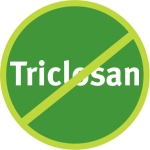Yesterday on my morning rounds, I heard yet another advertisement (please pronounce it the British way - it sounds so much more clever. Clev-ah.) encouraging me to get vaccinated against H1N1. Is that thing even around anymore? Just saying ...
I took just enough Biology in college to know that killing germs can be a bad thing: you never get them all and only the toughest survive. These tough survivors pass on their toughness to their offspring times two because it took TWO tough germs to make a little baby germ. We are breeding super bacteria when we could simply have washed them down the drain!
Taking the argument further is the point made by Dr. Sarah Janssen in a recent article posted at simplesteps.org. She refers to antibacterial cleansers as "hormone disrupting hand cleaners." Not soap, because it isn't soap. Not antibacterial, because it merely promotes stronger bacteria.
She writes, in part:
Triclosan and triclocarban are chemicals added to personal care products, such as liquid and bar soaps, body washes, toothpaste and other personal care products for their so-called “antibacterial” properties. Triclosan is found in 75 percent of liquid hand soaps and triclocarban is used primarily in deodorant bar soaps. The widespread use of triclosan has resulted in the widespread exposure of the U.S. population—almost three-quarters of Americans carry residues of this chemical in their bodies. Triclosan and triclocarban are hormone disrupting chemicals and we are concerned that exposure to these chemicals could be causing harmful effects in humans.

Both of these chemicals are hormone disrupting chemicals, but they interfere with different hormone systems and though their toxicity is not fully understood, what we do know about these chemicals is deeply concerning. Triclosan interferes with thyroid hormone. We know that other thyroid disrupting chemicals have been shown to alter development of the brain and nervous system causing problems with learning or behavior later in life and we are concerned that triclosan could have similar effects.
Triclocarban is a unique type of hormone disrupting chemical which has not been found to have any hormone disrupting properties on its own but has been shown to enhance the activity of other hormones, such as the sex hormones, estrogen and testosterone. Boosting your sex hormones isn’t necessarily a good thing! For someone with a hormonally dependent cancer, that could mean more hormonal stimulation of cancer cell growth.
Furthermore, within our homes, there are many chemicals that interfere with both thyroid and sex hormones including flame retardants, BPA, and phthalates.
As if I didn't support plain old soap and water enough before: I think I have a few new reasons to go natural!
Thanks for blogging about the dangers of triclosan! If you'd like to learn more about the human and environmental health impact of triclosan, please visit: http://www.foodandwaterwatch.org/water/chemical-contaminants/what-is-lurking-in-your-soap/
ReplyDelete